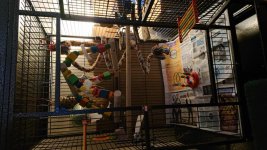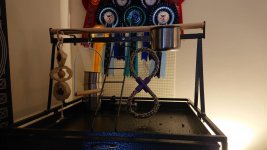Audio_bubbles
New member
- Jan 3, 2019
- 9
- 0
So I believe Freya is about one year old and been with me for about a month. She has never showin any signs of talking what age do they normally start talking or is she past the age and not going to be a talker. I talk to her a lot and it appears she's listening as she stretches her neck and starts chuffing.

